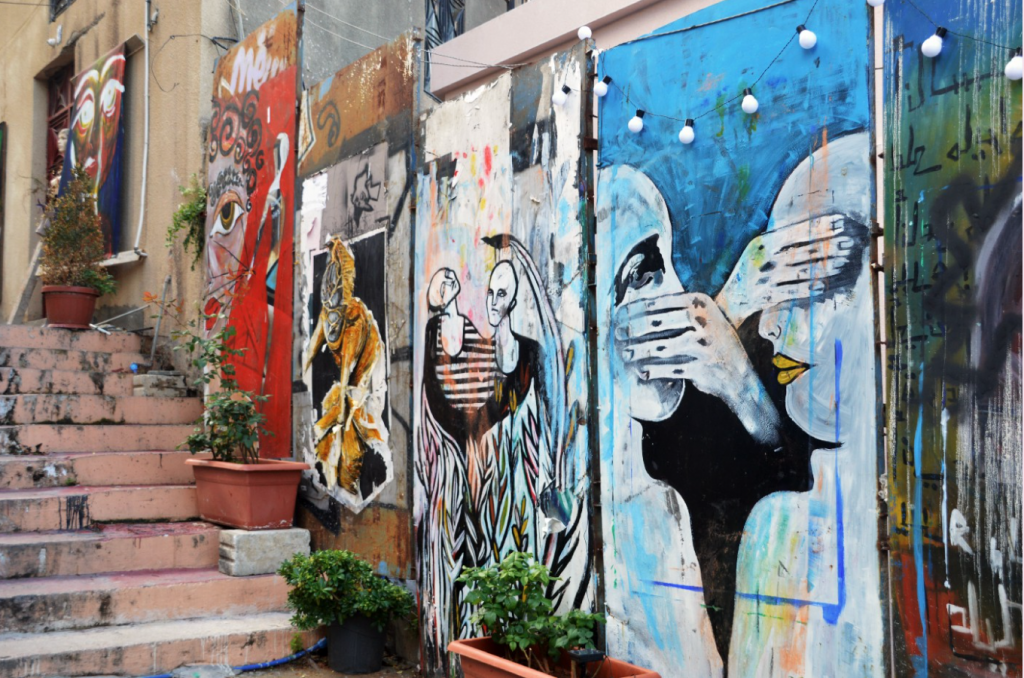I ugly-cried through every stage, but I’m pretty sure that’s how it’s supposed to work.
What are the Stages of Addiction Recovery?
The Stages of Addiction Recovery, or Trans-Theoretical Model (TTM), evolved from a study examining smokers’ experiences in the late 1970s. Founded by Prochaska and DiClemente, the study focused on the intentional decision-making process of the smokers that led to their desired behavior change — quitting smoking. The TTM argues that changing a habit, or addiction, is an ongoing process that occurs in phases, not overnight.
The Stages of Addiction Recovery, as it pertains to my alcohol addiction, are:
The Precontemplation Phase…What drinking problem?
The Contemplation Phase…Ohhh, that drinking problem!
The Preparation Phase…So what can I do about my drinking problem?
The Action Phase…Ohhh, I literally have to do something about my drinking problem!
The Maintenance Stage…and keep doing something about it?!
What are the Stages of Addiction Recovery?
The Stages of Addiction Recovery, or Trans-Theoretical Model (TTM), evolved from a study examining smokers’ experiences in the late 1970s. Founded by Prochaska and DiClemente, the study focused on the intentional decision-making process of smokers that led to their desired behavior change — quitting smoking. The TTM argues that changing a habit, or addiction, is an ongoing process that occurs in phases, not overnight.
The Stages of Addiction Recovery, as it pertains to my alcohol addiction, are:
The Precontemplation Phase…What drinking problem?
The Contemplation Phase…Ohhh, that drinking problem!
The Preparation Phase…So what can I do about my drinking problem?
The Action Phase…Ohhh, I literally have to do something about my drinking problem!
The Maintenance Stage…and keep doing something about it?!
Stage 1 — The Precontemplation phase
“Ignorance is bliss.”

The precontemplation phase is the denial phase. The person is not ready to face their addiction or may not yet recognize that they have an addiction.
Of all the five stages, I spent the most time here.
I lacked insight as to the extent of my drinking problem. There were red flags, but I made excuses; I justified; I negotiated.
Therefore, the most compelling data point came from outside sources.
When people comment or show concern about your addiction, ignoring these glaring red flags becomes harder.
Stage 1 IRL:
During the height of the pandemic, I had a Spanish teacher I’d meet with daily via Zoom. She quickly became a central member of my team, a tutor that moonlighted as my therapist and closest confidant.
One session, somewhere between her correcting my preterite ending of a verb and a loco overshare of my alcohol-fueled weekend, she interjected me in a slow, deliberate tone: “Nadine, I think you should stop drinking. I worry for you.” Her Colombian accent was thick, but her message was clear.
While I didn’t stop drinking, she planted a seed of awareness. At the time, I wasn’t ready to change, so I stopped sharing as much with her until I stopped sharing altogether.
I didn’t have a drinking problem, so why was she worried?
Stage 2 — The Contemplation stage
“Sitting on the fence.”

The contemplation stage, or contemplative readiness, is where the person is aware of the addiction but may be uncertain how to change.
Stage 2 IRL
On my 30th birthday, I took myself to Cabo for a solo getaway. The night before my actual birthday, I sat motionless under the stars, far too drunk to move. My thirsty ass had accepted countless birthday drinks from eager strangers; the evidence of such being a shallow grave I dug in the sand, like a dog, to cover my vomit tracks. A lovely waiter collected me from the cabana and ushered me into his brother’s taxi to ensure I arrived safely at my hotel.
Earlier that day, I was aware of two truths — before blacking out:
- I have a problem
- I don’t know how to make it stop
Of all the five stages, I hated it the most here.
I no longer found joy in drinking, yet continued to drink.
I felt like Neo from ‘The Matrix.’ Should I remain living in the fabricated yet familiar Matrix (blue pill) or accept the unsettling, life-altering truth that I have a problem (red pill)?
I eventually chose the red pill.
Stage 3 — The Preparation Stage
“Testing the waters.”

The preparation stage is where awareness meets willingness. The person realizes they have a problem and wants to change, so they consciously look for an emergency exit. This could look like picking a date to get sober or researching a rehabilitation center.
Stage 3 IRL
I spent hours agonizing over the root causes of my excessive drinking: was it chronic, genetics, environmental factors, sheer boredom?
Finally, I admitted to my therapist I had a real problem with alcohol. I then expressed a desire to change. In simply admitting my struggles with alcohol, I felt lighter. I began to envision a life without alcohol, and while this reality seemed uncertain, I felt inspired.
My history with alcohol — the good, the bad, the ugly — prepared me for this stage. There was no singular event or “rock bottom.” Everything culminated in perfect succession to get me to a place of readiness.
So what happens next?
Stage 4 — The Action Stage
“Act with intention.”

The action stage is where conscious choices are made to become sober. The person has to restructure many aspects of their life to prioritize their recovery. This process can be the most grueling and uncomfortable of all five stages.
The action stage was the most challenging stage for me.
I had to redefine my identity, interests, relationships, habits — pretty much all aspects of my life were restructured in some form to prioritize my sobriety.
Stage 4 IRL
When I first got sober, I thought keeping busy would be the best solution. I traveled to England, Portugal, Spain, and Morocco in the first two months of my recovery. While I had an epic holiday, towards the end of my trip, I desperately craved the routines, systems, and structures I had built for myself to support my sobriety.
Being in constant motion, through different timezones and 20+ hotels and Airbnbs (no exaggeration here), was hard on my sobriety. Thankfully I remained sober, but there were many temptations along the way.
I had to choose sobriety. Every single day.
Step 5: The Maintenance Stage
“Stay the course.”

The maintenance stage is about sustaining sobriety. The person may avoid triggers and risk factors that can lead to a potential relapse.
Stage 5 IRL
As I write this, I’m not at my college’s homecoming — which is a HUGE deal in Historically Black Colleges and Universities (HBCU) culture. I chose not to return to my old stomping grounds because I feared I would relapse and revert to a college party version of myself. As an added insurance policy, I won’t be checking Instagram for FOMO-worthy coverage of events.
You have to “take your medicine,” a friend from Alcoholics Anonymous (AA) repeats often. For her, medicine is going to multiple AA meetings a day. For me, maintaining sobriety is connected to established systems and routines, sober friends and community, writing, and a laundry-list length of self-care practices. In a somewhat ironic turn of events, I feel grateful for my addiction because she (alcohol is a bitch, so she) serves as a muse of sorts. I have purpose and feel inspired to share my experiences in hopes of helping others seeking recovery.
Step 6: Relapse
“Fall from Grace”

Relapse is not a stage but refers to “recycling” or when a person returns to the action or early maintenance stage. It’s important to note that relapse is not a failure.
In the past, I’d try and fail, fail and try, in what felt like a never-ending feedback loop of drunken doom.
Stage 6 IRL
The last time I relapsed was over the Fourth of July weekend. I was two weeks in and felt confident. So why not test my newfound sobriety and go to Atlantic City of all places? You won’t be surprised to learn I was drinking before I even put on my party dress to hit the casinos.
The key difference from this relapse was I didn’t relapse and then continued spiraling. I retreated and immediately sought help once I escaped the clutches of that ‘Knightrider’ meets ‘Miami Vice’ time-capsule nightmare of a town (idk, these are the few 1980s pop culture references I know, just go with it!)
I’m happy to report that seeking help after my last relapse has led to continued conscious sobriety.
Thanks for reading this article! Feel free to drop your thoughts in the comments.
Check out The Sober Butterfly for more sober content.

This is the perfect web site for anybody who wishes to understand this topic. You realize so much its almost tough to argue with you (not that I really will need toÖHaHa). You definitely put a new spin on a subject which has been written about for ages. Wonderful stuff, just excellent!
Excellent article. I certainly appreciate this website. Stick with it!
I need to to thank you for this good read!! I certainly loved every bit of it. I have you bookmarked to check out new stuff you postÖ
I was excited to uncover this great site. I need to to thank you for your time for this particularly wonderful read!! I definitely enjoyed every part of it and I have you book marked to check out new stuff in your web site.
Everything is very open with a clear description of the issues. It was definitely informative. Your site is extremely helpful. Thanks for sharing!
This is really interesting, You’re a very skilled blogger.
I have joined your rss feed and look forward to seeking more of your
excellent post. Also, I have shared your website in my social networks!
Helpful info. Fortunate me I discovered your website unintentionally, and I am
shocked why this accident did not came about earlier!
I bookmarked it.